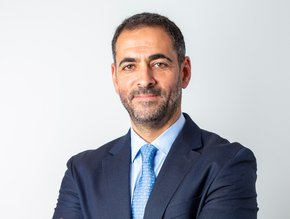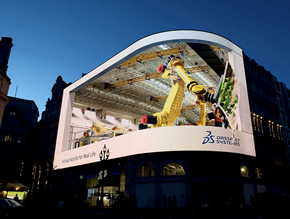Normative: Carbon-reduction in Supply Chain Manufacturing

Hello, please introduce yourself.
My name is Kristian Rönn and I am the CEO and co-founder of carbon accounting platform Normative. Before starting Normative, I worked at the University of Oxford’s Future of Humanity Institute on issues related to global catastrophic risks. This experience, together with my background in mathematics, philosophy, computer science, and artificial intelligence, has helped me build the company from the ground up.
After moving to Oxford to work for University, I realised that we needed to do more than just researching ways to reduce global risks - we need to actually produce actionable insights for decision-makers. This is why I believe that it is crucial for companies to be fully aware of their total emissions and how to reduce them. Back then, I was surprised that there was no existing solution to do this; that’s what inspired me to start Normative.
Tell us about your role at Normative.
As the CEO and Co-founder of Normative, a leading climate tech start up, I’m a firm believer in adopting a hands-on approach within our dynamic business environment. I consider myself a purpose-driven leader, continuously seeking ways to grow and enhance our impact. My passion lies not only in shaping our long-term strategic direction but also steering our day-to-day operations. My responsibilities are broad, encompassing active engagement with our worldwide network of partners and stakeholders, as well as the meticulous oversight of our daily business functions. I love my role because it allows me to work in close collaboration with our exceptional team of scientists, mathematicians, and climate experts, ensuring we adhere to the utmost standards of scientific integrity and innovation. Our mission is to provide outstanding services and accurate insights to our clients, guiding them on their path to achieving net zero.
Tell us about your approach to supply chain management and sustainability.
Business leaders want to use carbon data to drive value across their enterprise. The first step is to make the carbon visible - across scope 1, 2 and 3. Especially scope 3 emissions, which refer to a business' value chain, make up over 90% of their emission profile, yet are the most complex. Capabilities in the carbon accounting market to capture scope 3 emissions comprehensively are limited and vastly rely on simple survey tools.
This is why we believe making carbon visible and engaging with all partners and stakeholders in one’s value chain is critical. Introducing The Carbon Network, launched in 2023 and which facilitates the seamless exchange of carbon data through the value chain. It makes meaningful emissions insights available to many businesses so they can drive continuous reduction and action.
Moreover, The Carbon Network connects businesses directly with their value chain, gathering millions of suppliers and supplier data within a single network, where enterprises can easily extract information. This means that businesses joining the network can already rely on the existing data from suppliers already existing in the network.
It enables enterprises to gain access to up to date supplier carbon data and provides an interconnected platform between businesses. This enables businesses to gain continuous and up to date insights across their value chains. Rather than annually reporting numbers, businesses can continuously measure emissions and gain insights. With these, they can take more timely action to reduce their emissions.
This way, businesses can become more sustainable by identifying and addressing certain areas which require attention.
How is Normative enabling manufacturers to calculate their full carbon footprints and reduce their emissions to net zero?
Manufacturers work with a vast array of suppliers from all over the world, and the sheer quantity of data can make it incredibly time consuming to achieve even rudimentary calculations - not to mention the huge potential for human error. Normative’s automated calculation engine and hybrid calculation methodology - incorporating spend and activity data - achieves 100% emissions coverage no matter the quality of data available.
The geographic spread and varying digitalisation of these suppliers leads to inconsistent data quality and coverage. It’s next to impossible to thoroughly analyse this big data without digital solutions. Normative has a primary focus on scope 3 emissions, those coming from the supply chain, as these emissions are difficult to tackle and contribute to a significant amount of the planet’s overall emissions. Normative's value chain engagement modules make it possible to collect supplier emissions data at scale - incorporating the data with scientific precision and identifying opportunities for reduction.
Normative helps manufacturing businesses achieve emissions reduction commitments by moving from simple carbon data, towards actionable carbon insights. In 2024, Normative released a sophisticated data tagging system that can reveal precise carbon footprints for a region, office, product line, or individual services. This scalable approach makes it possible to find, action, and verify reduction efforts across a business.

Do you have any partnerships you can tell us about?
Of course! Normative are proud of our intentionally diverse ecosystem of partners, which at the highest level, is composed of three dimensions. Firstly - partners who can help serve clients right across their sustainability journey - be that strategic planning, compliance, supply and value chain optimisation - together and on the basis of the high integrity carbon data and insights that Normative bring to the table - fantastic alliances with companies like PwC, Baringa, Novisto.
Secondly, we partner with and co-innovate with the world’s largest and most future-thinking companies and organisations - bringing to life, for example Normative Carbon Network, steered by our alliances with companies like Nordea, Mastercard and Zurich Insurance, alongside emergent industry use cases. And third, Normative have always sought to “set the Norm” in helping define new regulatory and legislative frameworks, and improve those which exist. It’s in our DNA. We’re proud that we can bring our expertise and thought leadership to alliances which help shape the market - such as our founding partnership status of Bankers For Net Zero: Perseus and founding technology partner of the UN Race To Zero backed SME Climate Hub.
Can you share some statistics about your work?
As it is Normative’s vision to make known and reduce the sustainability impact of all economic activities on the planet - some of our key stats is how much carbon we are calculating and reducing across our customer base. To that extent:
- Over the past 12 months, Normative customers in total have calculated 71 million tons of CO2e emissions, which is equivalent to the emissions of Singapore in 2022
- Over the past two reporting periods, Normative customers achieved an average reduction in their overall GHG emissions of about 8.4%.
When it comes to our product, Normative is seeing fast adoption rates with usage strongly increasing over time, indicating that we have a good product market fit
- Normative commits to providing carbon accounting emission insights within 3 weeks of receiving data input from customers. However, this can be significantly faster: we have seen implementations as fast as 2 days.
- Normative saw a 5x increase in product usage YoY in 2023 which is strongly correlated to the new features we are shipping
- Normative value chain outreach on average has a market leading response rate of over 50% - highlighting our ability to meet our customers at every maturity level to ensure easy data input
This strength in product is reflected in our customer satisfaction:
- Normative customers in 2023 had a CSAT of 94%
- Normative support in 2023 had a first median response time of only 28 minutes - with no outsourced support on our end
Overall these stats show that the impact we create is enabled through a capable product, which in turn makes our customers happy.
What do the next 12 months hold for you and the company?
We are further growing the Carbon Network, our solution for businesses to share carbon data and collaborate on reductions. Thousands of businesses have joined the network, making it easier than ever to access high-quality carbon reporting and collaborate on reduction initiatives. We are also thrilled to welcome new partners like PwC, Baringa, Proxima, Deloitte Digital and others who will be offering customers bespoke consulting offerings, paired with our best-in-class carbon calculations.
We will also roll out new ways for businesses to examine and interrogate carbon data, making it easier to find emissions reduction opportunities after the low-hanging fruit might have already been reduced. That means working with carbon emissions at the level of the product or process.
And, of course, we have our eyes on the constantly growing carbon disclosure requirements around the globe. Whether it’s the new regulations in California, or the upcoming reporting due for CSRD in Europe, we are investing in new ways for customers to export their carbon calculations to all preeminent reporting bodies, ensuring accuracy, traceability, and compliance.
******
Make sure you check out the latest edition of Manufacturing Digital and also sign up to our global conference series - Procurement & Supply Chain 2024 & Sustainability LIVE 2024
******
Manufacturing Digital is a BizClik brand.
- WEF, Kearney Report: Manufacturing’s Rhetoric vs RealitiesProduction & Operations
- Immensa and Intaj Suhar partner to boost Omani manufacturingProcurement & Supply Chain
- Daikin Applied's Dedication to Sustainable ManufacturingProduction & Operations
- Top 10: Chief Manufacturing OfficersProduction & Operations






